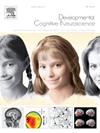Optimizing infant neuroimaging methods to understand the neurodevelopmental impacts of early nutrition and feeding
IF 4.9
2区 医学
Q1 NEUROSCIENCES
引用次数: 0
Abstract
There is strong evidence proper nutrition is imperative for healthy infant neurodevelopment, providing the neural foundations for later cognition and behavior. Over the first years of life infants are supported by unique sources of nutrition (e.g., human milk, alternative milk sources). It is during this time that the brain undergoes its most drastic changes during postnatal development. Past research has examined associations between infant feeding and nutrition and morphological features of the brain, yet there remains a paucity of information on functional characteristics of neural activity during feeding. Within this article, we discuss how neuroimaging modalities can be optimized for researching the impacts of infant feeding and nutrition on brain function. We review past research utilizing EEG and fNIRS and describe our efforts to further develop neuroimaging approaches that allow for measurement of brain activity during active feeding with greater spatial resolution (e.g., fMRI and OPM-MEG). We also discuss current challenges, as well as the scientific and logistical limitations of each method. Once protocols have been optimized, these methods will provide the requisite insight into the underlying mechanisms of nutritional and feeding impacts on neurodevelopment, providing the missing piece in the field’s efforts to understand this essential and ubiquitous part of early life.
优化婴儿神经影像学方法,了解早期营养和喂养对神经发育的影响。
有强有力的证据表明,适当的营养对健康的婴儿神经发育至关重要,为以后的认知和行为提供神经基础。在生命的最初几年中,婴儿得到独特营养来源的支持(例如,人乳,替代奶源)。正是在这段时间里,大脑在出生后的发育过程中经历了最剧烈的变化。过去的研究已经检查了婴儿喂养和营养与大脑形态特征之间的联系,但仍然缺乏关于喂养期间神经活动功能特征的信息。在这篇文章中,我们讨论了如何优化神经成像模式来研究婴儿喂养和营养对脑功能的影响。我们回顾了过去利用EEG和fNIRS的研究,并描述了我们进一步开发神经成像方法的努力,这些方法允许以更高的空间分辨率测量主动进食期间的大脑活动(例如,fMRI和OPM-MEG)。我们还讨论了当前的挑战,以及每种方法的科学和后勤限制。一旦方案得到优化,这些方法将提供必要的洞察营养和喂养对神经发育影响的潜在机制,提供该领域努力了解早期生活中这一必不可少和无处不在的部分的缺失部分。
本文章由计算机程序翻译,如有差异,请以英文原文为准。
求助全文
约1分钟内获得全文
求助全文
来源期刊

Developmental Cognitive Neuroscience
NEUROSCIENCES-
CiteScore
7.60
自引率
10.60%
发文量
124
审稿时长
6-12 weeks
期刊介绍:
The journal publishes theoretical and research papers on cognitive brain development, from infancy through childhood and adolescence and into adulthood. It covers neurocognitive development and neurocognitive processing in both typical and atypical development, including social and affective aspects. Appropriate methodologies for the journal include, but are not limited to, functional neuroimaging (fMRI and MEG), electrophysiology (EEG and ERP), NIRS and transcranial magnetic stimulation, as well as other basic neuroscience approaches using cellular and animal models that directly address cognitive brain development, patient studies, case studies, post-mortem studies and pharmacological studies.
 求助内容:
求助内容: 应助结果提醒方式:
应助结果提醒方式:


